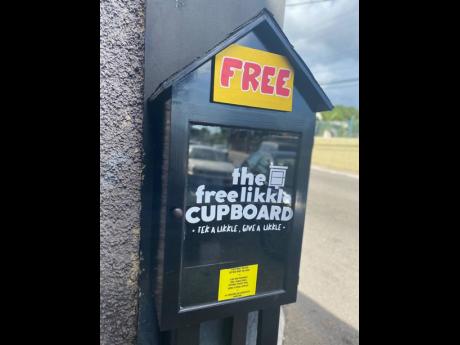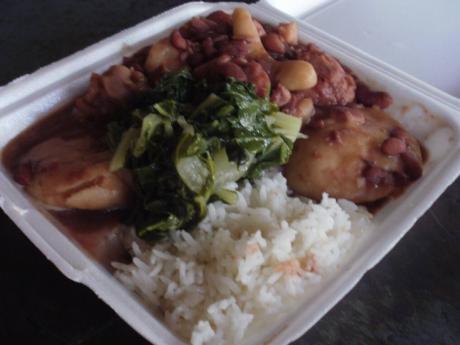Yaneek Page | Thinking of launching a food bank? Read this first
ADVISORY COLUMN: SMALL BUSINESS
In my last column, I asked readers to consider the likely implications of the deepening social and economic fallout from the pandemic, particularly the extent of the country’s social protections and safety net to help those who may fall on hard times.
The response to the questions posed have been overwhelming. Many readers conceded that they had limited or absolutely no ability to weather job loss or business closure in the current crisis amid months of depressed demand, dwindling savings, and rising food and energy prices.
Others who were more fortunate, including some in our diaspora, indicated a willingness to donate to existing food banks or poor-relief organisations and even launch initiatives of their own to help the growing number of families in need.
That need is significant. Hardship looms amid mass business closures and high unemployment.
Just last week, the Statistical Institute of Jamaica (STATIN) underscored the extent of the adversity being faced by some with the release of the latest labour force and employment data for Jamaica, which showed a 51.2 per cent rise in unemployment in July 2020 when compared to July 2019.
Not only are tens of thousands of Jamaicans now unemployed but many have stopped looking for work as STATIN also reported a significant 10.8 per cent decline in the labour force when compared to the corresponding period last year.
The STATIN data appear consistent with business closure reports from some of the country’s leading business organisations, for example, the Small Business Association of Jamaica, which issued a call last week for government aid and loans after reporting that 35 per cent of their members had already closed their doors as a result of the pandemic.
Costly operation
Operating a food bank is costly. For those readers who expressed interest in launching a food bank in Jamaica to help alleviate the growing hardship, the most important considerations are cost and financing. This is a social enterprise that relies heavily on donations and still takes loads of cash to care.
In fact, to serve a hundred families consistently for a year may cost tens of millions of dollars in administrative costs alone. This was confirmed by GraceKennedy Foundation CEO Caroline Mahfood who kindly shared the model and budget for one of Jamaica’s newest food banks, founded in April 2019, called GK Campus Connect Food Bank. The entity has two locations and currently serves college students from The University of the West Indies, the University of Technology, and the Edna Manley College of the Visual and Performing Arts.
In the past year, they have served approximately 900 students, with just 160 of those being served consistently on a twice-a-month grocery schedule for relief throughout the school year.
The proposed annual budget for the food bank is $27,000,000 to serve 200 students with non-perishable foods and grocery items on a consistent schedule throughout the year. The major costs include a salary for the coordinator, transportation to collect goods from suppliers and donors, inventory management, utilities, marketing and outreach, shelving and other infrastructure, and a video-monitoring system.
Interestingly, the bulk of the actual food and grocery costs is not included in the budget as food banks rely on the generosity of donations for individuals and corporations.
Note also that the costs would be higher if it were not for the entity leveraging key GraceKennedy resources, know-how and expertise, networks and reputation, among others, to allow 100 per cent of donations to go directly to students. These costs are also additional to the initial outlay that included the buildout of property (rent free) and the purchase of an inventory-management system, among others.
A critical point to note is that all of the food banks and food pantries I contacted in Jamaica, including the one run by the GraceKennedy Foundation, are in need of donations of cash and kind to expand their reach and deepen their impact. None were satisfied that they have adequate funding and supplies to meet the growing demand.
Food For the Poor and Jamaica Foodbank are just two entities that have recently published calls for donations on either their website or social media pages.
Therefore, all things considered, it may be a better use of our energy and resources to support existing organisations than to try launch new entities, particularly in this pandemic.
I encourage readers to support local food benefactors through donations of cash or kind. Even if you are unable to donate, it costs nothing to amplify the work they do and inspire others to give, or alternatively, share how others in need may receive support from them in these trying times.
One love!
Yaneek Page is the programme lead for Market Entry USA, a certified trainer in entrepreneurship, and creator and executive producer of The Innovators and Let’s Make Peace TV series.


